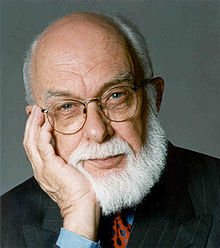Last. Ethics. Blog. Ever.
I. In last week's journal I said I wanted to research some other forms of alternative medicine. After researching I found that there are several alternative medicine categories, which are:
-Mind-body medicine
-Alternative Medical Systems
-Lifestyle and Disease Prevention
-Biologically based therapies
-Manipulative and Body-Based Systems
-Biofield
-Bioelectromagnetics
-resources
Then, each of these categories is broken down into three sub-categories, which are:
-CAM: yoga, internal Qigong, Tai Chi
-Behavioral Medicine: psychotherapy, meditation, imagery, hypnosis, biofeedback, support groups
-Overlapping: art therapy, music therapy, dance therapy, journaling, humor, body psychotherapy
Then, each of those categories can be broken down even farther into various types of alternative medicine therapy. full list on this website:
http://your-doctor.com/patient_info/alternative_remedies/overview_alternrx.html
source:
Types of Alternative Medicine. (n.d.). DoctorsCorner.Com Homepage. Retrieved June 5, 2011, from http://your-doctor.com/patient_info/alternative_remedies/overview_alternrx.html
II. I can't honestly remember anything we did this week except a little bit of HIP, talked about the exam, and then learned Couillard's life story. That being said, I thought it would be more appropriate for me to basically just do a summary of the whole year for my last journal. This class has been incredible. I never would have expected to get this much out of it. We've studied all kinds of interesting topics like: magic, politics, advertising/media techniques, fallacies, documentary-making, propaganda, principles of ethics, philanthropy, social psychology, international relations, technology, and more. We even embarked on a journey to save the world one small step at a time. Through the Heroic Imagination project we learned how to plan effectively, branch out and acquire resources, write a grant proposal, and so much more. This class has taught each and everyone of us so many valuable life lessons that we can take with us wherever we go.
Google Image Result for http://www.webaxes.com/wp-content/uploads/2010/06/ethics.jpg. (n.d.). Google. Retrieved June 5, 2011, from http://www.google.com/imgres?imgurl=http://www.webaxes.com/wp-content/uploads/2010/06/ethics.jpg&imgrefurl=http://www.webaxes.com/2010/06/workplace-ethics/&usg=__0KSGNEBdDNRxx2ujBq9QKfY4Z0Q=&h=320&w=480&sz=196&hl=en&start=7&zoom=1&itbs=1&tbnid=TsrAT88Cozv
Personally I think this class has been incredibly beneficial. Sometimes it seemed like the units we studied were pointless at first, but they always ended up having a valuable lesson within them. This class, unlike most others, allowed for a lot of creativity. It was mostly an open-discussion type class, which provided us with an opportunity to show our true colors. There wasn't nearly as much structure to this class as there is in core classes like science, math and english. I think that an enthics class should be a requirement for all public school children. It has an unbelievable amount to offer to kids who are growing up in this crazy world. I know that I gained a whole lot this year and I wish it wasn't over already. I plan to take every lesson I learned in this class and use each of them where they apply in my life.
I'm slipping more and more away from the journal rubric with each one of these paragraphs, but I hope it doesn't affect my grade too much (cough cough, Mr. Couillard). I want to take the opportunity to thank you in this last paragraph for being so enthusiastic and teaching this awesome class. I have thoroughly enjoyed it and obviously I wouldn't take the time (and risk of disregarding the rubric) if I didn't mean that honestly. I think that "Couillard's last class" presentation was an incredible ending to the year as well. Unfortunately I didn't get to hear all of it, but from what I did get to hear, I was really impressed. Thanks for taking the time to share your own story with us, in hope that we can gain something from it. I know I did.
source: Google Image Result for http://positivepsychologynews.com/ppnd_wp/wp-content/uploads/2008/12/thank-you-bodies.jpg. (n.d.). Google. Retrieved June 5, 2011, from http://www.google.com/imgres?imgurl=http://positivepsychologynews.com/ppnd_wp/wp-content/uploads/2008/12/thank-you-bodies.jpg&imgrefurl=http://positivepsychologynews.com/news/aren-cohen/200812121313&usg=__bBSlDHMWoJpGKMW_xnnHZuMp_Mc=&h=288&w=375&sz=41&hl=



























